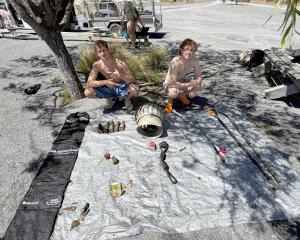
The council has approved allocating $33,000 from a waste levy to support the feasibility stage of a pilot project.
The idea was to test methods of diverting construction materials, prioritising local reuse and recycling, the council said.
However, because of a lack of reprocessing options locally for treated timber, plasterboard and construction-related plastics, the pilot would "test the logistics of diverting these materials to other onshore locations via rail, utilising freight containers that would otherwise be returning north empty".
Materials would go to Christchurch or Auckland.
The feasibility analysis will include a desktop review and confirm industry partners to take part in the trial.
It is estimated this would be completed in October and, if approved, there might then be a six-month pilot.
Cr Lee Vandervis said in a council meeting last week no feasibility study was needed — the pilot should not fly.
Economic viability had already been well traversed by private operators, he said.
"Companies like Nash and Ross, and Hall Bros, in particular, have been doing feasibility for decades in these areas and have invested millions of dollars and have created large facilities to be able to reuse and recycle."
Cr Vandervis said it would be better if the council looked at incentives for businesses to remove timber before demolition.
Cr Sophie Barker highlighted the consultancy driving the concept, Environmental Innovation Centre, had previously been turned down by the Ministry for the Environment.
Council staff said industry partners "remained supportive and wish to pursue a pilot project focused on Dunedin".
The council voted 11-3 to contribute to the feasibility study.
Crs Vandervis, Barker and deputy mayor Cherry Lucas were against.
Cr Christine Garey said she believed the construction industry was ready for the initiative.
Operators wanted to have a practical and viable way of dealing with demolition waste, she said.
Mayor Jules Radich said the project was "moving the envelope of recyclable materials a bit further out".
"If we don’t perform the experiment, we’ll never know."












